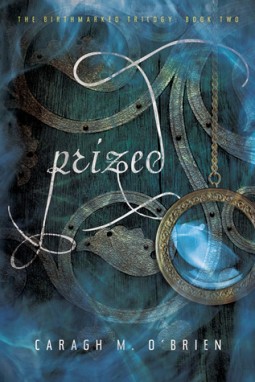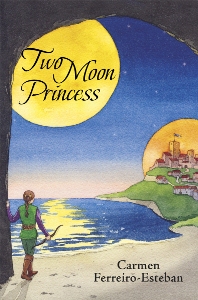This review contains affiliate links, which earn me a small commission when you click and purchase, at no extra cost to you. Thank you for supporting my small business and allowing me to continue providing you a reliable resource for clean book ratings.
This sequel to Birthmarked finds Gaia right where we left her. She has left the Enclave for the mythical wasteland with nothing but her baby sister and a handful of supplies. Just when it seems the 16-year-old midwife can go no farther, she is discovered by the Sylum, a society that appears to be the anti-Enclave, where women are few and rule the men. As a result, the addition of two girls into their population is important to Sylum. In order to see her sister again, Gaia must submit to their strict social conduct, where a kiss is a crime and a man cannot speak to a woman unless he is spoken to first. The strict rules of the Sylum grate against Gaia’s sense of justice. However, she is forced to attempt to comply with the rules in order to save herself and her sister.
In all frankness, the only thing that drove me to finish Prized was my borderline compulsive need to finish all books I start. The first book, Birthmarked, was reasonably engaging. In many ways this book was very much the same as its prequel; however, for me there were some new plot developments that were not interesting. For example, medically and genetically, the Sylum has some real issues. More than 90 percent of all children born are male and vast numbers of their male population are sterile. I have almost no interest in things of a medical nature; even more I avoid them generally. Further, I felt that some of the discussions surrounding these issues were unnecessary in a young adult novel.
Rated: Moderate. In many ways this book has no identifiable violence, language, or sexual content. However, as mentioned, some of the subject matter is too mature to warrant a “None” rating. For example, Gaia gives a girl in Sylum herbs which induce abortion. Also, Gaia performs an autopsy on a deceased male who was sterile. She notes that he has external male genitalia, but once she opens him up she finds that he has a uterus and other female reproductive organs. There is also the continuation of the birthing scenes which generally describe the process of labor and delivery, even including Gaia physically checking and feeling for the progression of the labor. In many ways this book is a moderate just because of its themes and subject matter. For young readers who are interested in medicine, who might want to be a doctor or nurse, or who have a mature understanding of the human body and reproduction, the content likely won’t be offensive. However, readers who are even younger or lack a certain level of comfort or maturity with respect to the human body will likely be confused at the very least.
Click here to purchase your copy of Prized on Amazon.





Pingback: Promised (Birthmarked, book three) | Rated Reads